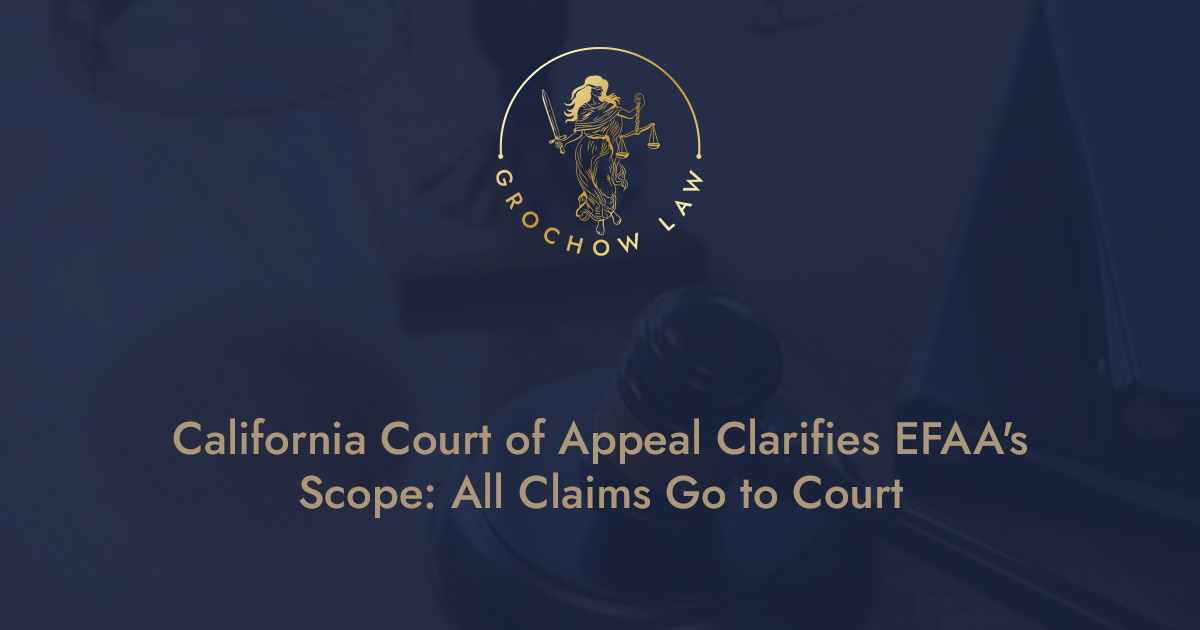As the legal landscape surrounding the Ending Forced Arbitration of Sexual Assault and Sexual Harassment Act (EFAA) evolves, the California Court of Appeal has made key decisions in Doe v. Second Street Corp. and Liu v. Miniso Depot CA, Inc. These rulings establish that a plaintiff cannot be compelled to arbitration if at least one claim in the case involves sexual assault or harassment covered by the EFAA, even if other claims are unrelated.
Understanding EFAA’s Legislative Intent
The EFAA, enacted in 2022, aims to restrict pre-dispute arbitration agreements and class or collective action waivers in cases related to sexual assault and sexual harassment. This legislation was largely a response to the #MeToo movement, addressing concerns that private arbitration could obscure allegations of sexual misconduct from public scrutiny.
However, the scope of the EFAA is not entirely clear. While it explicitly focuses on sexual misconduct claims, its reference to the term “case” in the context of arbitration exemptions has created ambiguity. Specifically, the EFAA states that no pre-dispute arbitration agreement shall be enforceable with respect to any case that involves a sexual harassment dispute.
Key Decisions from the Court of Appeal
In both Liu and Doe, the California Court of Appeal emphasized the importance of the term “case” in the EFAA. This terminology suggests that if any claim within a case pertains to sexual assault or harassment, those claims cannot be compelled to arbitration, regardless of the inclusion of unrelated claims.
In Liu, the court ruled that the plaintiff’s claims for misclassification, gender discrimination, and retaliation were exempt from mandatory arbitration because they were associated with a sexual harassment claim. Similarly, in Doe, the court found that the plaintiff’s wage and hour claims were also exempt from arbitration due to their connection with a sexual harassment claim.
Unresolved Questions
Despite these clarifications, a critical question remains: Are unrelated wage and hour class action claims filed in the same case as a sexual assault or harassment claim also exempt from arbitration under the EFAA?
In Liu, the court specifically chose not to address this issue. Meanwhile, Doe left open the possibility that EFAA might not apply to wage and hour claims that are not asserted by the same plaintiff or do not stem from the same course of employment with the defendant.
Looking Ahead
The recent rulings by the California Court of Appeal provide valuable insight into how state courts may interpret the EFAA. However, the lingering question about unrelated claims indicates that further legal challenges may arise.
As the situation develops, legal experts will continue to monitor the implications of these decisions and the evolving understanding of the EFAA’s application to various claims. The outcomes of future cases could further define the boundaries of arbitration exemptions and shape the landscape for victims of sexual assault and harassment seeking justice.
This post is an advertisement. Any comments provided do not create an attorney-client relationship.

